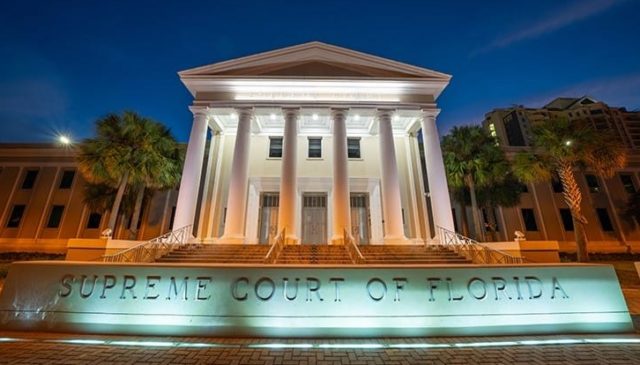
A second citizen-led petition to legalize adult-use cannabis in Florida bit the dust June 17, when the state’s Supreme Court ruled the words “for limited use” were misleading.
The initiative, titled “Regulate Marijuana in a Manner Similar to Alcohol to Establish Age, Licensing and Other Restrictions,” was geared for the 2022 ballot and also included provisions for home grows—up to six mature cannabis plants per household member 21 years and older.
But in a 5-2 decision last week, Florida’s Supreme Court struck down the proposed constitutional amendment, concluding it was “clearly and conclusively defective” and did not meet certain clarity requirements outlined in Section 101.161 of Florida Statutes.
Florida Attorney General Ashley Moody first requested the court give an advisory opinion on the ballot proposal’s validity in September 2019. It took the court nearly two years to weigh in.
“Namely, the opponents take issue with the language in the ballot summary that states the proposed amendment would regulate marijuana ‘for limited use and growing by persons 21 years of age or older,’” justices Charles Canady and Ricky Polston said in the majority opinion. “They contend that the text of the proposed amendment itself does not limit the personal ‘use’ of marijuana and that the ballot summary therefore affirmatively misleads voters. We agree.”
Canady and Polston also said, “The ballot summary plainly tells voters that the proposed amendment ‘limit[s]’ the personal use—i.e., consumption—of recreational marijuana by age-eligible persons. But the proposed amendment itself does not do so.”
Sponsored by Sensible Florida Inc., the initiative petition had 28,983 signatures of the 891,589 signatures needed—or just 3.2%—to make the ballot, according to the Florida Division of Elections. Had it reached the ballot, the proposed amendment would have required at least 60% approval from voters to pass.
That was the second initiative to legalize adult-use cannabis that the Florida Supreme Court struck down in three months. In April, the court ruled in another 5-2 decision that a Make it Legal Florida-ballot hopeful would have misled voters by failing to disclose that cannabis would still be illegal under federal law.
In his dissenting opinion of the most recent decision, Justice Alan Lawson said the majority properly analyzed the ballot summary but did not properly analyze the ballot summary and ballot title together, which is required by a precedent court decision in determining whether the ballot information properly informs the voters.
“The amendment itself details the ways that marijuana use would be regulated similar to Florida’s current regulations affecting alcohol use,” Lawson said. “Therefore, reading the title and summary together, ‘limited use’ could also be understood as a reference to the regulations disclosed in the aptly descriptive title.”
With two adult-use cannabis initiatives struck down, one legalization effort still remains—a Floridians for Freedom-sponsored ballot proposal titled “Right of Adults to Cannabis.” Currently, that initiative only has 2,292 signatures (of 891,589 needed). In its summary, the proposal discloses that cannabis would remain federally illegal.
But Florida Republican Gov. Ron DeSantis recently signed legislation, Senate Bill 1890, that imposes a $3,000 cap per individual on contributions to any political group sponsoring or opposing a proposed constitutional amendment initiative while signatures are being gathered. Once enough signatures are gathered and a proposal is approved for the ballot, unlimited contributions are allowed. That new law is set to take effect July 1.
Sensible Florida had raised roughly $271,000 before the Supreme Court struck down its initiative last week, according to the Miami Herald. Most of that money would not have been allowed under the new law.
Meanwhile, as Floridians for Freedom push forward with its initiative, proponents believe they should be exempt from the financial restrictions the new law places on the signature-gathering process because their initiative was first approved in 2015, reported WJHG-TV, an CBS affiliate in Panama City, Fla.
The signature deadline is Feb. 1, 2022.
